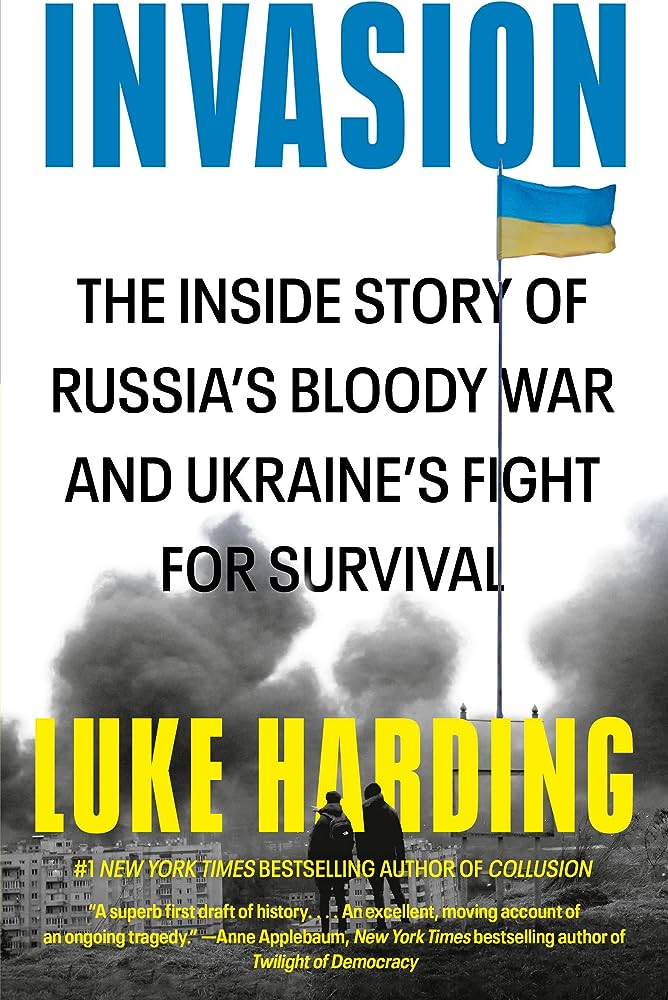by Nicole Yurcaba

As a Ukrainian American living in rural West Virginia, for the past 17 months I’ve had many unique opportunities to speak with people about the war in Ukraine and why Ukraine matters. I’ve encountered a wide variety of opinions about the war, ranging from those who believe Ukraine should be blown off the face of the Earth because Biden visited to sincere sympathy and empathy from people who never heard of Ukraine prior to February 2022. As the United States nears another presidential election cycle, undoubtedly Ukraine and American support for it will become a flashpoint between Republicans and Democrats. Republican hopeful Ron DeSantis frequently calls the war in Ukraine a “proxy war” (it isn’t) and feeds into alt-right (false) narratives about Ukraine and its president, Volodymyr Zelenskyy, while Democrat and current president Joe Biden affirms to Ukraine and the globe that the United States will uphold its security obligations to Ukraine. However, if you, like me, frequently encounter the occasional pro-Russia supporter or you’re looking for a unique gift for the vatnik in your community, I suggest handing them a copy of Luke Harding’s Invasion: The Inside Story of Russia’s Bloody War and Ukraine’s Fight for Survival.
Luke Harding is a journalist, writer, and award-winning foreign correspondent with The Guardian. Between 2007 and 2011, he served as The Guardian’s Moscow bureau chief, and in Summer 2022 the Kremlin officially blacklisted him. On 24 February 2022, Harding was on the ground, in Kyiv, when the invasion began, and while that’s where Invasion begins, it is most definitely not where it ends. In fact, Harding’s book takes great strides to uplift and preserve the Ukrainians whose ordinary lives transformed instantly during that fateful February. And it is those narratives which make Invasion a true standout among the swath of books about Ukraine currently written and published by Westerners.
Readers meet notable, yet behind-the-scenes Ukrainian officials like Yevhen Kramarenko, the head of Ukraine’s exclusion zone state agency in the chapter “Fire and Sword.” Kramarenko’s contribution to the book focuses on the Russian army’s occupation of Chornobyl, where it “brought in fifty armored vehicles and around twelve hundred service personnel.” These personnel “immediately began looting,” stealing everything from “computer servers used to take radiation readings” to “microwaves and coffee makers.” Another unique individual featured in this particular chapter is Vasiliy Davidenko. Described as a “bearded sixty-eight-year-old ranger who worked in Chornobyl’s exclusion zone nature reserve,” characters like Davidenko not only add flairs of local color to the book, they also remind readers that the war effects local, working, everyday people like themselves. Thus, Harding’s portrayals add something to the overarching political and social narratives many–particularly right-leaning– news reports and politicized commentary about the war fails to–the reality that Ukrainians are people whose lives cannot, and should not, be measured in dollars spent to aid and arm them.
Harding, too, doesn’t shy away from a blistering reality for the United States — how Donald Trump’s presidency and his “obeisance to Putin is still not fully explained” and to “Russia’s advantage” made the United States retreat from the world. Harding’s portrayal of the Trump-Putin alliance highlights an unfortunate reality for a United States facing a possible Trump reelection: unlike Biden, Trump will not commit to backing Ukraine, and much like Russia, the United States would potentially retreat deeper into global isolation. This retreat obviously had, and will have, irreversible consequences for not only the United States, but also the globe. As Harding notes, Russia, nonetheless, capitalized, and continues to capitalize, on what Harding portrays as “the familiar signs of division, hesitancy, and poor leadership” not only in the United States, but also in Europe.
And, speaking of Europe, Invasion focuses on Ukraine’s potential NATO membership, which Putin has reiterated as one of his many reasons for launching his “special military operation.” Vladimir Putin not only believes that Ukraine does not exist as a country and Ukrainians do not exist as a people. He also thinks that Ukraine has no right to join NATO, and he perceives the country’s pursuit of NATO membership as a threat to Russia’s sovereignty and borders. However, instead of thwarting NATO expansion, Russia’s invasion of Ukraine actually accelerated it. Countries like Finland and Sweden quickly poised themselves to end decades of neutrality by applying to join NATO. For Finns, the invasion of Ukraine, as well as the potential to join NATO, was rather personal. Harding poses, “They recalled conversations with their grandparents about the Winter and Continuation Wars, the one hundred thousand young men who had perished defending their homeland, and the grim battle of 1939-1940 in which 10 percent of Finnish territory was lost.” Nonetheless, Finland and Sweden’s positions simply echo a wider, more global recognition of the war, which Harding perfectly summarizes via a statement made by Volodymyr Zelenskyy: “[…] this was not a war being waged by Russia against only Ukraine. It was ultimately a war for the future of the world order and for the right to dictate conditions in Europe. A war, then, of ideas.” In other words, the war opened global eyes to the military and ideological atrocities in which Russia has engaged and ultimately used to threaten global security for decades.
Invasion: The Inside Story of Russia’s Bloody War and Ukraine’s Fight for Survival is a heartbreaking and compelling work of nonfiction. Harding possesses the bravery to expose and share what other journalists and media networks will not. Most of all, his writing illuminates not only the Ukrainian fight for freedom, but the global one, in which global support, both militarily and humanitarian, is an immediate necessity in political theaters spanning from Europe to Africa, Asia to the United States. Invasion is a brilliant photograph in words, capturing and framing Ukrainian resiliency and survival, reminding readers everywhere that, as Ukraine’s national anthem emphasizes, “Ukraine’s glory is not yet dead.”
Nicole Yurcaba (Ukrainian: Нікола Юрцаба–Nikola Yurtsaba) is a Ukrainian (Hutsul/Lemko) American poet and essayist. Her poems and essays have appeared in The Atlanta Review, The Lindenwood Review, Whiskey Island, Raven Chronicles, West Trade Review, Appalachian Heritage, North of Oxford, and many other online and print journals. Nicole teaches poetry workshops for Southern New Hampshire University and is a guest book reviewer for Sage Cigarettes, Tupelo Quarterly, Colorado Review, and The Southern Review of Books.



Add your first comment to this post